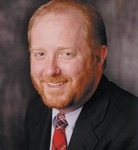 “The thought struck me, How did you come to be a Christian? I sought the Lord. But how did you come to seek the Lord? The truth flashed across my mind in a moment—I should not have sought him unless there had been some previous influence in my mind to make me seek him. I prayed, thought I, but then I asked myself, How came I to pray? I was induced to pray by reading the Scriptures. How came I to read the Scriptures? I did read them, but what led me to do so?
“The thought struck me, How did you come to be a Christian? I sought the Lord. But how did you come to seek the Lord? The truth flashed across my mind in a moment—I should not have sought him unless there had been some previous influence in my mind to make me seek him. I prayed, thought I, but then I asked myself, How came I to pray? I was induced to pray by reading the Scriptures. How came I to read the Scriptures? I did read them, but what led me to do so?
Then, in a moment, I saw that God was at the bottom of it all, and that he was the Author of my faith, and so the whole doctrine of grace opened up to me, and from that doctrine I have not departed to this day, and I desire to make this my constant confession, ‘I ascribe my change wholly to God.'” – C. H. Spurgeon, as quoted in Dave Harvey, Am I Called? The Summons to Pastoral Ministry (Crossway, 2012), 38
“What ‘tunes my heart to sing God’s grace’ is not music, lighting, or atmosphere, but the gospel of Jesus Christ.” – Bob Kauflin
“The sin of Adam did not make the condemnation of all men merely possible; it was the ground of their actual condemnation. So the righteousness of Christ did not make the salvation of men merely possible, it secured the actual salvation of those for whom He wrought.” – Charles Hodge
“All that mankind have heaped up to themselves against the day of God’s holy and righteous wrath — their forgetfulness of God, their selfish conduct, their disobedience, pride, worldly-mindedness, their filthy lusts, hypocrisy, falsehood, hardheartedness, and deceit — all are united and mingled in this cup, and ferment together into a horrible potion.
‘Shall I not drink this cup?’ asks the Saviour.
‘Yes,’ we reply, ‘empty it, beloved Immanuel! We will kiss thy feet, and offer up ourselves to Thee upon Thy holy altar!’
He has emptied it, and not a drop remains for His people. The satisfaction He rendered was complete, the reconciliation effected, and now nothing remains for us but to sing Hallelujah!” – F. W. Krummacher
“If anyone should ask me what I mean by a Calvinist, I should reply, “He is one who says, Salvation is of the Lord.” I cannot find in Scripture any other doctrine than this. It is the essence of the Bible. “He only is my rock and my salvation.” Tell me anything contrary to this truth, and it will be a heresy; tell me a heresy, and I shall find its essence here, that it has departed from this great, this fundamental, this rock-truth, “God is my rock and my salvation.” What is the heresy of Rome, but the addition of something to the perfect merits of Jesus Christ—the bringing in of the works of the flesh, to assist in our justification? And what is the heresy of Arminianism but the addition of something to the work of the Redeemer? Every heresy, if brought to the touchstone, will discover itself here. I have my own private opinion that there is no such thing as preaching Christ and Him crucified, unless we preach what nowadays is called Calvinism. It is a nickname to call it Calvinism; Calvinism is the gospel, and nothing else. I do not believe we can preach the gospel, if we do not preach justification by faith, without works; nor unless we preach the sovereignty of God in His dispensation of grace; nor unless we exalt the electing, unchangeable, eternal, immutable, conquering love of Jehovah; nor do I think we can preach the gospel, unless we base it upon the special and particular redemption of His elect and chosen people which Christ wrought out upon the cross; nor can I comprehend a gospel which lets saints fall away after they are called, and suffers the children of God to be burned in the fires of damnation after having once believed in Jesus. Such a gospel I abhor.” – C. H. Spurgeon
“Our fair morning is at hand; the daystar is near the rising, and we are not many miles from home. What matter, then, of ill-entertainment in the smoky inns of this worthless world? We are not to stay here, and we shall be dearly welcome to Him to whom we are going.” – Samuel Rutherford
“A yet further charge against us is, that we dare not preach the gospel to the unregenerate, that, in fact, our theology is so narrow and cramped that we cannot preach to sinners. Gentlemen, if you dare to say this, I would take you to any library in the world where the old Puritan fathers are stored up, and I would let you take down any one volume and tell me if you ever rend more telling exhortations and addresses to sinners in any of your own books. Did not Bunyan plead with sinners, and whoever classed him with any but the Calvinists? Did not Charnock, Goodwin, and how we agonise for souls, and what were they but Calvinists? Did not Jonathan Edwards preach to sinners, and who more clear and explicit on these doctrinal matters. The works of our innumerable divines teem with passionate appeals to the unconverted. Oh, sirs, if I should begin the list, time should fail me. It is an indisputable fact that we have laboured more than they all for the winning of souls. Was George Whitefield any the less seraphic? Did his eyes weep the fewer tears or his bowels move with the less compassion because he believed in God’s electing love and preached the sovereignty of the Most High? It is an unfounded calumny. Our souls are not stony; our bowels are not withdrawn from the compassion which we ought to feel for our fellow-men; we can hold all our views firmly, and yet can weep as Christ did over a Jerusalem which was certainly to be destroyed. Again, I must say, I am not defending certain brethren who have exaggerated Calvinism. I speak of Calvinism proper, not that which has run to seed, and outgrown its beauty and verdure. I speak of it as I find it in Calvin’s Institutes, and especially in his Expositions. I have read them carefully. I take not my views of Calvinism from common repute but from his books. Nor do I, in thus speaking, even vindicate Calvinism as if I cared for the name, but I mean that glorious system which teaches that salvation is of grace from first to last. And again, then, I say it is an utterly unfounded charge that we dare not preach to sinners.” – C. H. Spurgeon
“As the gospel is purely a matter of revelation given to the apostles by God, we cannot add to it, or subtract from it. So anything that may have happened in the world since the writing of the New Testament makes not the slightest difference. We are dealing here with things about God and eternity, and we know nothing about them. On this subject there has been no additional knowledge during the last two thousand years. None at all.” – Dr. Martyn Lloyd-Jones, Love so Amazing
“Faith says not, ‘I see that it is good for me, so God must have sent it,’ but, ‘God sent it, and so it must be good for me.'” – Phillips Brooks
“It is what we think we know already that often prevents us from learning.” – Claude Bernard
“The decree of election is a secret decree. And since no revelation has been given to the preacher as to which ones among his hearers are elect and which are non elect, it is not possible for him to present the Gospel to the elect only. It is his duty to look with hope on all those to whom he is preaching, and to pray for them that they may each be among the elect. In order to offer the message to the elect, he must offer it to all; and the Scripture command is plain to the effect that it should be offered to all. Even the elect must hear before they can believe and accept.” (Romans 10:13-17) – Lorraine Boettner
“There is a common, worldly kind of Christianity in this day, which many have, and think they have enough – a cheap Christianity which offends nobody, and requires no sacrifice – which costs nothing, and is worth nothing.” – J.C. Ryle
“A sin is two sins when it is defended.” – Henry Smith
“Peace is such a precious jewel that I would give anything for it but truth.” – Matthew Henry
Continue reading →
 It is a subtle, but important distinction. I approve the desire to think God’s thoughts after Him. I fear though that I am sometimes tempted to approve God’s thoughts only when they agree with mine. A few weeks ago during a Question and Answer time at Ligonier’s annual conference I honestly answered a question as to my views on the age of the earth. I’m a young earth guy. Have been for twenty years. Though there were other young earth guys on the panel, and all the gentlemen on the panel are in my judgment fine, godly men, I found myself humbled by the enthusiastic support of the young earthers in the crowd, as if I had taken some sort of odd, bold and prophetic stand.
It is a subtle, but important distinction. I approve the desire to think God’s thoughts after Him. I fear though that I am sometimes tempted to approve God’s thoughts only when they agree with mine. A few weeks ago during a Question and Answer time at Ligonier’s annual conference I honestly answered a question as to my views on the age of the earth. I’m a young earth guy. Have been for twenty years. Though there were other young earth guys on the panel, and all the gentlemen on the panel are in my judgment fine, godly men, I found myself humbled by the enthusiastic support of the young earthers in the crowd, as if I had taken some sort of odd, bold and prophetic stand. Now it may well be that we young earthers are the geo-centrists of our day. It may well be that the best, most faithful understanding of Genesis is a Framework view, or some other view that requires an old earth. In short, I could be wrong. Geology, however, biology, astro-physics will not be how I come to know I am wrong. It would take the Bible to do that.
Now it may well be that we young earthers are the geo-centrists of our day. It may well be that the best, most faithful understanding of Genesis is a Framework view, or some other view that requires an old earth. In short, I could be wrong. Geology, however, biology, astro-physics will not be how I come to know I am wrong. It would take the Bible to do that.
 “The thought struck me, How did you come to be a Christian? I sought the Lord. But how did you come to seek the Lord? The truth flashed across my mind in a moment—I should not have sought him unless there had been some previous influence in my mind to make me seek him. I prayed, thought I, but then I asked myself, How came I to pray? I was induced to pray by reading the Scriptures. How came I to read the Scriptures? I did read them, but what led me to do so?
“The thought struck me, How did you come to be a Christian? I sought the Lord. But how did you come to seek the Lord? The truth flashed across my mind in a moment—I should not have sought him unless there had been some previous influence in my mind to make me seek him. I prayed, thought I, but then I asked myself, How came I to pray? I was induced to pray by reading the Scriptures. How came I to read the Scriptures? I did read them, but what led me to do so?